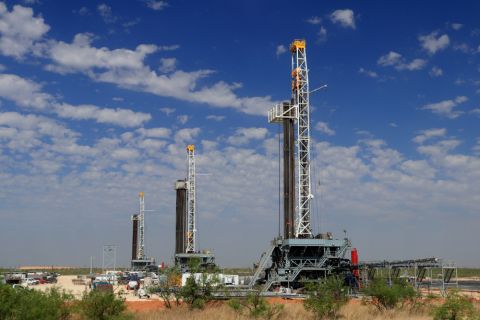Exxon Mobil Corp. has announced its ambition to achieve net zero greenhouse gas emissions for operated assets by 2050, amid mounting investor and public pressure on oil and gas producers to respond to climate change.
The oil major said on Jan. 18 that its net-zero aspiration covers emissions from its oil, gas and chemical production and from the power those operations consume, so-called Scope 1 and 2 targets. It made no commitment for emissions from consumers using those products.
“We are developing comprehensive roadmaps to reduce greenhouse gas emissions from our operated assets around the world, and where we are not the operator, we are working with our partners to achieve similar emission-reduction results," Exxon's Chairman and CEO Darren Woods, said in a statement.
The net-zero ambition is contained in the company’s Advancing Climate Solutions 2022 Progress Report, formerly known as the Energy & Carbon Summary.
The report provides details of how Exxon Mobil’s business strategy is resilient when tested against a range of Paris-aligned net-zero scenarios, including the United Nations Intergovernmental Panel on Climate Change’s 2018 Special Report and the International Energy Agency’s Net Zero by 2050 scenario.
In November 2021, Exxon said it would increase spending on projects dedicated to lower-carbon emissions to $15 billion through 2027. That includes development of technologies that are currently not commercial, like carbon capture and storage, hydrogen power and biofuels from algae.
In December of last year, the oil major pledged to achieve net-zero greenhouse gas emissions in its operations in the U.S. Permian Basin by 2030.
Sound government policies will accelerate the deployment of key technologies at the pace and scale required to support a net-zero future, Exxon Mobil said in a press release, adding that the company "continues to support an explicit price on carbon to establish market incentives and encourage investments in lower-emissions technologies."
“We believe our strategy is unique among industry and enables us to succeed across multiple scenarios," Woods said.
"We will create shareholder value by adjusting investments between our existing low-cost portfolio and new lower-emission business opportunities to match the pace of the energy transition.”
European oil producers have been leading the energy transition with concrete plans to replace fossil fuels with renewable wind and solar power while U.S. oil producers have lagged many European rivals in embracing Paris climate agreement goals. Both Exxon Mobil and Chevron plan to increase oil production, supported by estimates that global oil demand will rise.
Recommended Reading
TPH: Lower 48 to Shed Rigs Through 3Q Before Gas Plays Rebound
2024-03-13 - TPH&Co. analysis shows the Permian Basin will lose rigs near term, but as activity in gassy plays ticks up later this year, the Permian may be headed towards muted activity into 2025.
CEO: Continental Adds Midland Basin Acreage, Explores Woodford, Barnett
2024-04-11 - Continental Resources is adding leases in Midland and Ector counties, Texas, as the private E&P hunts for drilling locations to explore. Continental is also testing deeper Barnett and Woodford intervals across its Permian footprint, CEO Doug Lawler said in an exclusive interview.
For Sale, Again: Oily Northern Midland’s HighPeak Energy
2024-03-08 - The E&P is looking to hitch a ride on heated, renewed Permian Basin M&A.
Chevron Hunts Upside for Oil Recovery, D&C Savings with Permian Pilots
2024-02-06 - New techniques and technologies being piloted by Chevron in the Permian Basin are improving drilling and completed cycle times. Executives at the California-based major hope to eventually improve overall resource recovery from its shale portfolio.
To Dawson: EOG, SM Energy, More Aim to Push Midland Heat Map North
2024-02-22 - SM Energy joined Birch Operations, EOG Resources and Callon Petroleum in applying the newest D&C intel to areas north of Midland and Martin counties.





